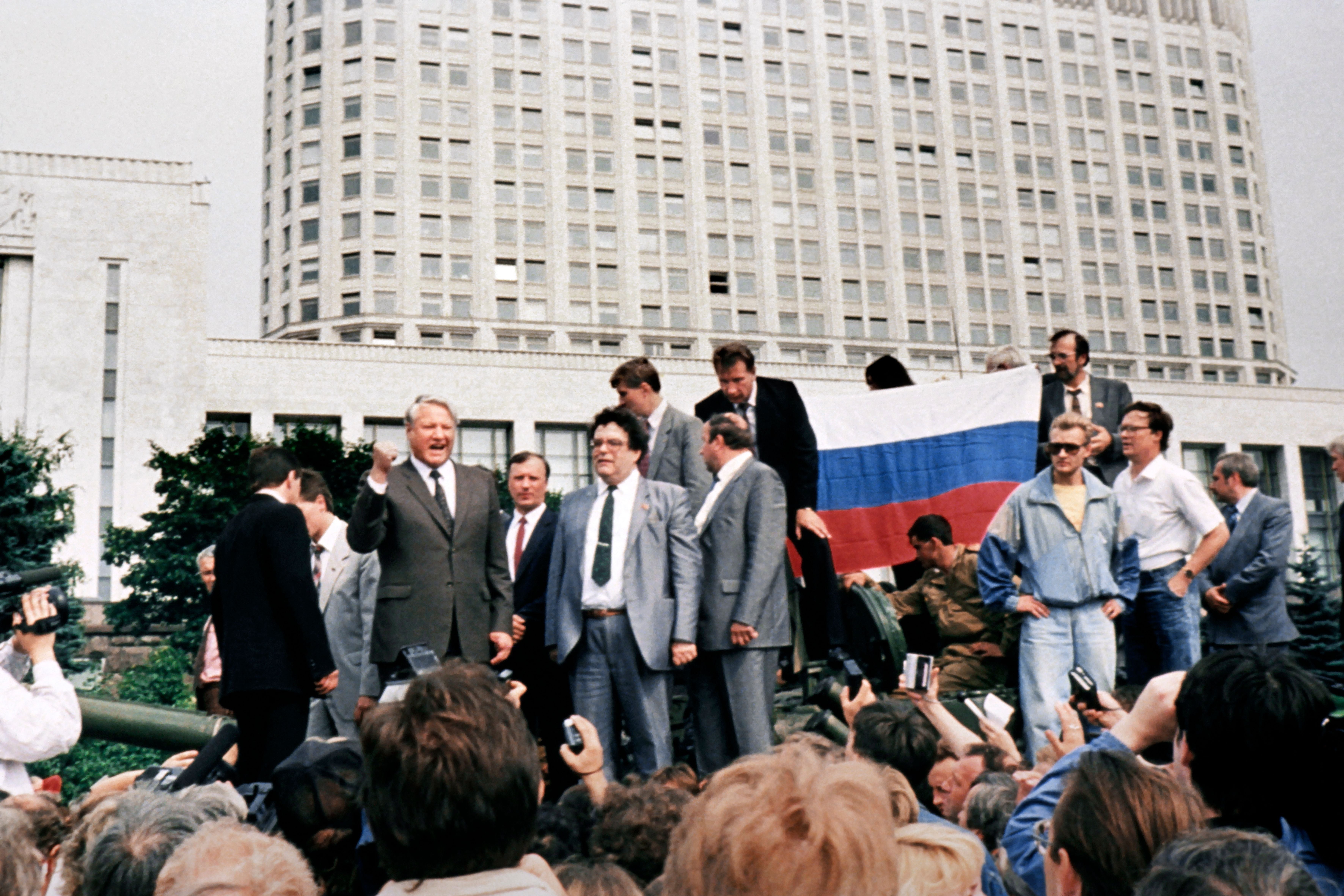Did Yeltsin’s tenure of corruption and cronyism give rise to Putin?
Or did the Russian president offer a glimpse of liberal democracy? Thirty years on from the collapse of the Soviet Union, Mick O’Hare considers the fall-out from the failed coup of August 1991

On the afternoon of 18 August 1991 a delegation of Soviet Union government officials arrived at the holiday dacha of Mikhail Gorbachev, president and Communist Party general secretary, at Foros on the Black Sea. In late July, Vladimir Kryuchkov, head of the security agency, the KGB, had recorded Gorbachev speaking with political rivals. The Soviet Union had been under increasing strain throughout the year with rioting in dissident republics, and ethnic and religious minorities demanding autonomy or independence from Moscow. Gorbachev had been discussing plans for a restructuring of the Soviet system in order to save the union – strengthening the republics and reducing the power of Moscow – and who would have to be removed from government to achieve it.
His opponents were communist hardliners who feared – correctly as it transpired – the destruction of the Soviet Union and as a consequence its control over a huge swathe of Europe and Asia. The hardliners hadn’t taken kindly to Gorbachev’s twin totems of glasnost (openness) and perestroika (restructuring of the Soviet command economy and government). Kryuchkov was one of that cohort as was Dmitry Yazov, the defence minister, to whom he gave the recording.
Earlier that year Soviet troops had stormed the Lithuanian parliament and other government buildings in an attempt to bring the republic, which had declared independence the previous year, into line. It later turned out that Gorbachev had known nothing about it. Instead the order to send troops into Lithuania had been given by the same hardliners now at his front door. They had been plotting against him for the best part of a year and now, after recording Gorbachev cavorting with people they considered enemies of the state, realised they had to move rapidly.
Subscribe to Independent Premium to bookmark this article
Want to bookmark your favourite articles and stories to read or reference later? Start your Independent Premium subscription today.
Join our commenting forum
Join thought-provoking conversations, follow other Independent readers and see their replies